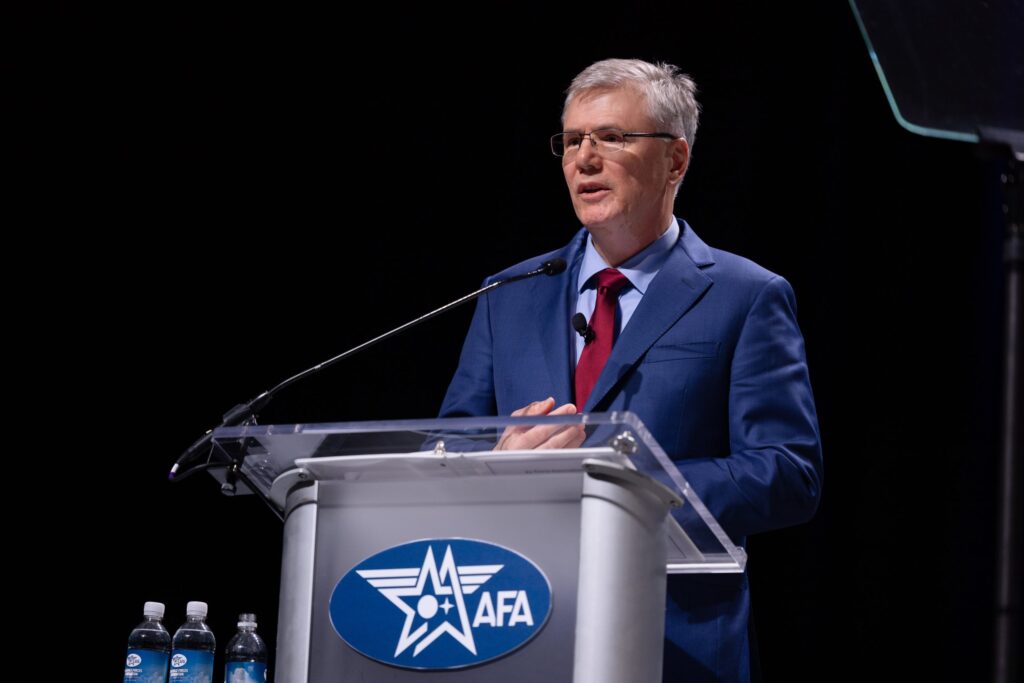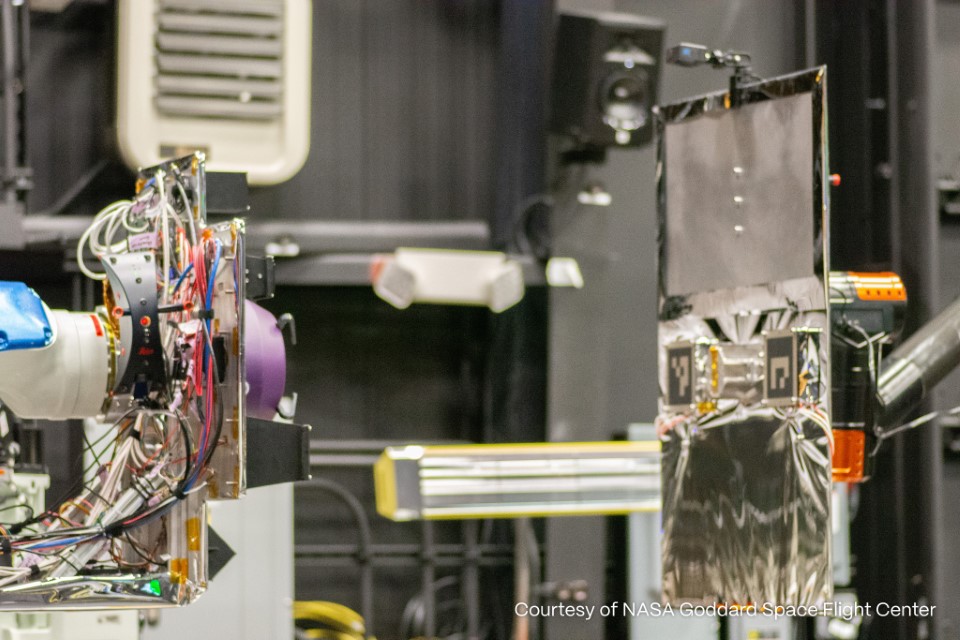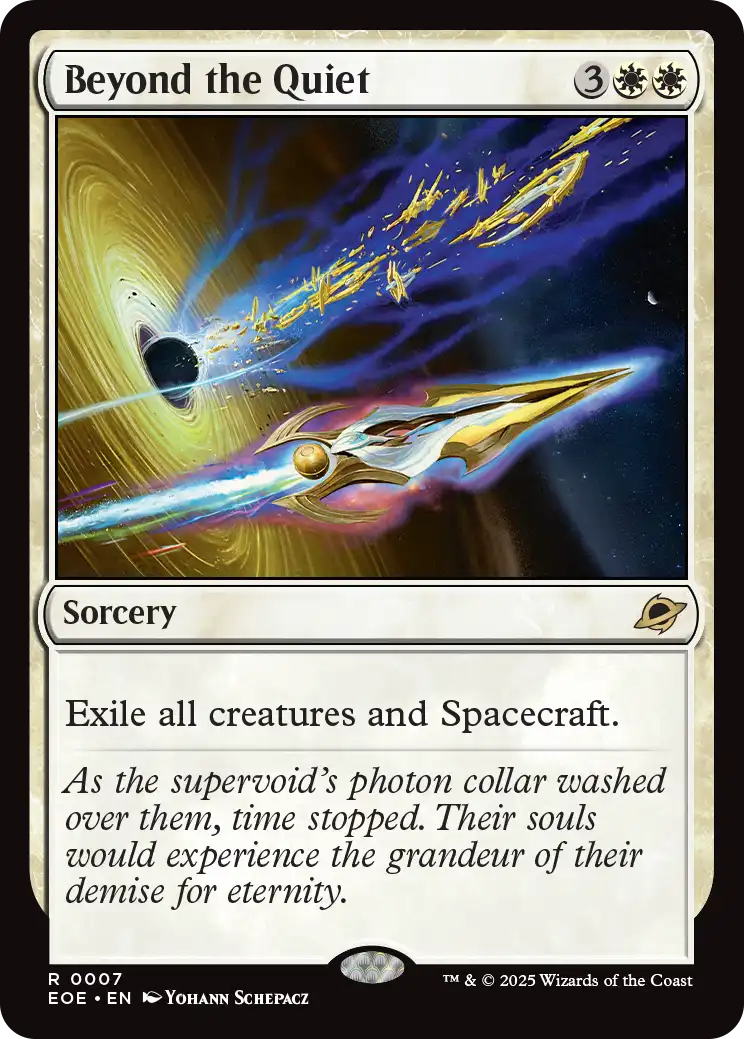Now Reading: Trump directs U.S. Space Command move to Huntsville, reversing Biden decision
-
01
Trump directs U.S. Space Command move to Huntsville, reversing Biden decision
Trump directs U.S. Space Command move to Huntsville, reversing Biden decision


WASHINGTON — President Donald Trump on Sept. 2 announced the long-anticipated relocation of U.S. Space Command headquarters from Colorado Springs, Colorado, to Huntsville, Alabama, reversing a 2023 decision by President Biden to keep the command in Colorado.
The announcement came at a White House event with Vice President JD Vance, Defense Secretary Pete Hegseth and several Alabama lawmakers, reflecting the strong political backing for the move both inside the administration and in the state set to host the command.
Trump, during the event, said his opposition to Colorado’s use of mail-in voting played into his decision to shift the headquarters to Huntsville’s Redstone Arsenal, a U.S. Army base. He also praised Huntsville’s status as a hub of space activity, calling it central to the development of the Golden Dome missile defense shield, a next-generation system of space-based sensors and interceptors.
Hegseth said the Air Force “independently identified that Huntsville, Alabama, was the right place to put it,” adding that Trump was placing the command “precisely where it should be based on what the Space Force, the Air Force, your leadership believes will give us strategic advantage in the future.”
The announcement capped a protracted, six-year debate over the headquarters, marked by sharp political and military disagreements about where Space Command — the combatant command responsible for overseeing U.S. military operations in space — should be permanently based. The command has operated from Colorado Springs since its reestablishment in 2019.
Basing fight timeline
The battle over the headquarters location began in January 2021, in the final days of Trump’s first term, when the Department of the Air Force selected Redstone Arsenal after a review that considered infrastructure, projected costs and synergies with NASA and Army space facilities in the area.
Biden later reversed that decision, citing military leaders’ concerns that a relocation could disrupt operations at a time of accelerating threats in space. The administration announced the headquarters would remain in Colorado Springs.
That move drew immediate backlash from Alabama officials, who pointed to analyses showing the relocation could save $426 million over 15 years. The Pentagon’s inspector general and the Government Accountability Office launched separate reviews.
The inspector general’s report, released in April 2025, concluded that the Air Force’s evaluation process was technically sound and reaffirmed Huntsville as the preferred site on cost and long-term strategic grounds, while acknowledging the readiness concerns cited by senior commanders. A GAO report in May highlighted challenges at the Colorado Springs location, including aging facilities spread across multiple sites and staffing shortfalls aggravated by the prolonged uncertainty.
Colorado lawmakers have pushed back against the move, pointing to the state’s decades-long role as the center of U.S. military space activity and warning that uprooting the headquarters could weaken operational continuity.
Huntsville advocates, meanwhile, stress the city’s aerospace ecosystem — including the Army’s Space and Missile Defense Command and NASA’s Marshall Space Flight Center — as a foundation for the command’s future. Known as “Rocket City,” the area has sought to position itself as the nation’s premier hub for military and civilian space programs.
Space Command, one of the Pentagon’s 11 Unified Combatant Commands, oversees missions ranging from space situational awareness and missile warning to satellite communications and integrating space power into joint operations.
The relocation is projected to move about 1,600 military and civilian jobs from Colorado to Alabama. While uniformed personnel would be required to relocate, Colorado lawmakers have warned that many civilian employees may opt not to move, creating potential gaps in institutional knowledge and disruptions to operations during the transition.
Trump in remarks at the White House said that if personnel assigned to Space Command didn’t want to relocate to Huntsville, it would not matter. “We’ll get somebody else,” he said.
Colorado lawmakers in a joint statement after the announcement said today’s decision to move U.S Space Command’s headquarters out of Colorado and to Alabama “will directly harm our state and the nation. We are united in fighting to reverse this decision. Bottom line — moving Space Command headquarters weakens our national security at the worst possible time.”
U.S. Space Command in a social media post said it “stands ready to carry out the direction of the president, following today’s announcement of Huntsville, Alabama, as the command’s permanent headquarters location.”
Stay Informed With the Latest & Most Important News
-
 01Two Black Holes Observed Circling Each Other for the First Time
01Two Black Holes Observed Circling Each Other for the First Time -
 02From Polymerization-Enabled Folding and Assembly to Chemical Evolution: Key Processes for Emergence of Functional Polymers in the Origin of Life
02From Polymerization-Enabled Folding and Assembly to Chemical Evolution: Key Processes for Emergence of Functional Polymers in the Origin of Life -
 03Astronomy 101: From the Sun and Moon to Wormholes and Warp Drive, Key Theories, Discoveries, and Facts about the Universe (The Adams 101 Series)
03Astronomy 101: From the Sun and Moon to Wormholes and Warp Drive, Key Theories, Discoveries, and Facts about the Universe (The Adams 101 Series) -
 04Φsat-2 begins science phase for AI Earth images
04Φsat-2 begins science phase for AI Earth images -
 05True Anomaly hires former York Space executive as chief operating officer
05True Anomaly hires former York Space executive as chief operating officer -
 06Hurricane forecasters are losing 3 key satellites ahead of peak storm season − a meteorologist explains why it matters
06Hurricane forecasters are losing 3 key satellites ahead of peak storm season − a meteorologist explains why it matters -
 07Thermodynamic Constraints On The Citric Acid Cycle And Related Reactions In Ocean World Interiors
07Thermodynamic Constraints On The Citric Acid Cycle And Related Reactions In Ocean World Interiors


















